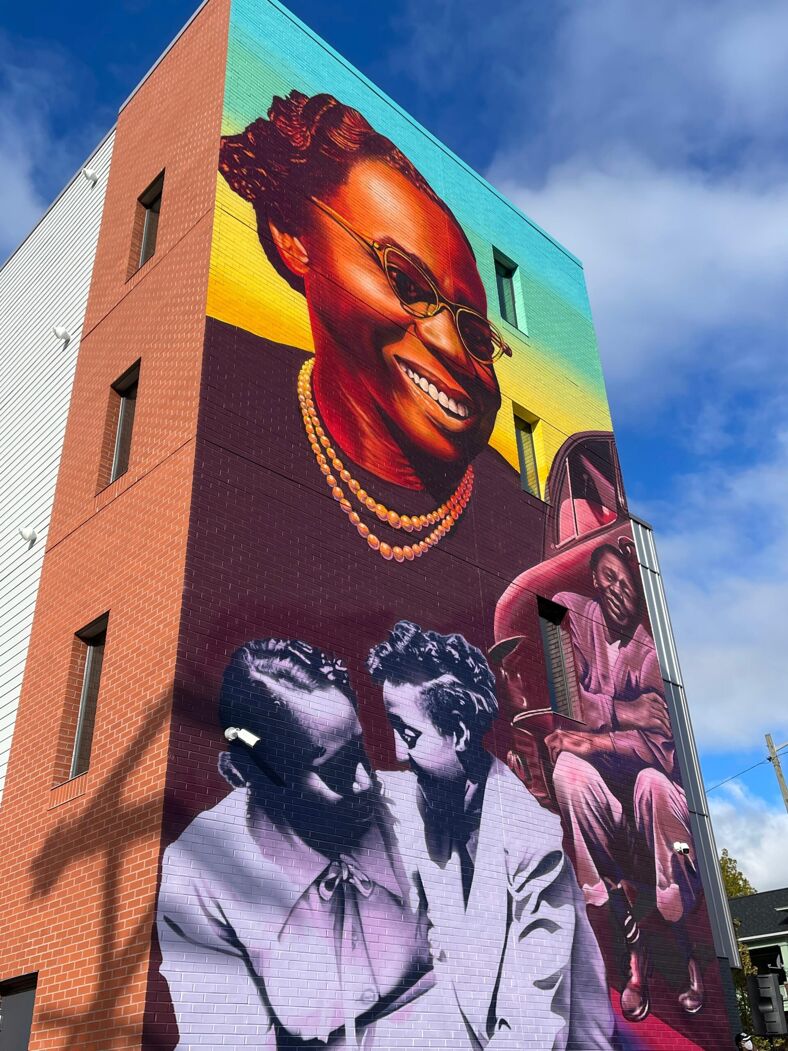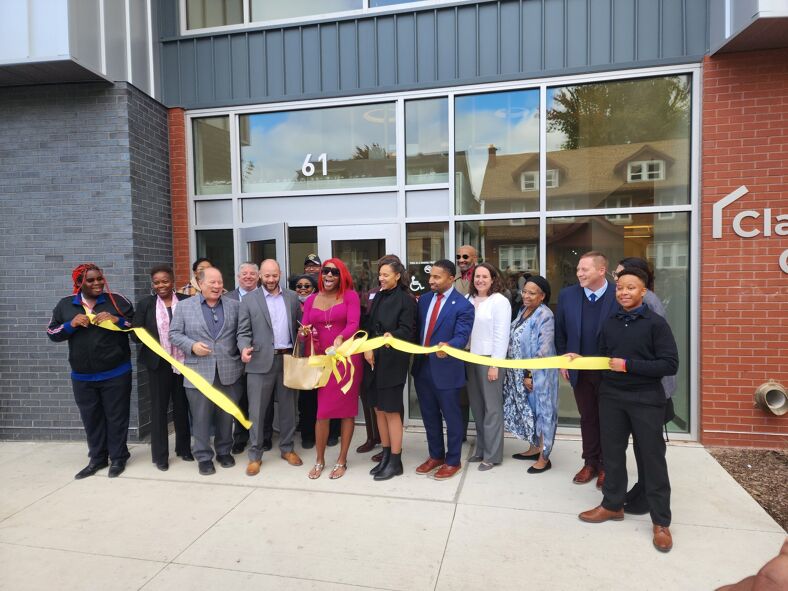
Last year, at-risk queer youth in Detroit were gifted a sign of hope on Clairmont Street. The new Ruth Ellis Center facility in the Piety Hill neighborhood unveiled a mural of portraits of its namesake as the face of the four-story building, designed by local artist Ijania Cortez.
Of course, it’s the 43-unit supportive housing development that can be found inside that’s truly revolutionary and a long time coming.
It all started with Ellis, who was said to be the oldest known living (out)lesbian in America; others consider her the first lesbian activist. She used inheritance money to open a print shop at her home, becoming the first woman in Michigan to own a printing business. From the 1940s to the 1960s, her humble abode became a powerful gathering space for queer African Americans, including supporting youth with supplies, books, and tuition.
Ruth Ellis, a former Detroit resident, was the oldest surviving open lesbian, and LGBT rights activist. Born in 1899, and living until 101, she came out as a lesbian around 1915. She took in LGBTQ+ youth experiencing homelessness, provided them books, food, and college tuition. pic.twitter.com/7yfOk5Xr5i
— Congresswoman Rashida Tlaib (@RepRashida) February 9, 2023
Ellis didn’t know it yet, but this began a support network for Detroit’s most marginalized people. Throughout her life, she followed her calling to use her resources to help others, and that calling was heard by a group of community activists – including John Allen, Kofi Adoma, and Courtney Wilson, who were determined to make her aid everlasting.
In 1999, the same year Ellis was celebrating her 100th birthday, the Ruth Ellis Center opened its doors with a mission to help queer BIPOC homeless youth. Ellis presided at the ribbon-cutting ceremony. It was a rare opportunity for one of queer history’s icons to experience their legacy immortalized in good deeds for future generations.
In 2000, Ellis urged lesbians and gay men to work together for equality. Speaking to the Advocate, she said: “If we could get more gay people in our politics, I think it would help a lot.” Ellis also had a message for young people: “I hope you get a good education. And be honest and caring. Try to love people. Have a happy life if you can in this crazy world.” She passed away that same year.
Lilianna Angel Reyes of Michigan shared her story as one of 50 voices from 50 states for #Pride2017. https://t.co/JO7WxVek5b pic.twitter.com/bXSKzqe9Rj
— USA TODAY (@USATODAY) June 5, 2017
Ruth’s House, the center’s transitional-living quarters, opened in 2004. The center quickly established a reputation for quality and innovation in providing trauma-informed services for (LGBTQ+) youth and young adults, emphasizing young people of color experiencing homelessness, being involved in the child welfare system, and/or experiencing barriers to health and well-being.
In 2021, LGBTQ Nation spotlighted The Ruth Ellis Center in Voices of Pride and discovered the organization wasn’t just living up to its name, the homeless youth it lifted were taking it upon themselves to uplift the next person in need.
Our sister media outlet chronicled the journey of Lilian Angel Gomez, a transgender woman saved by the center. She went on to become director of the LGBTQ youth drop-in service, one of the organization’s most vital components. This includes providing immediate access to food, clothing, hygiene items, laundry facilities, a computer lab, case management, therapy, connection to medical care, and various life skills classes and groups.
Homelessness is an international crisis but doesn’t impact every community equally. Although less than 10% of the population identifies as queer, they make up nearly 40% of homeless youth. Familial rejection is the number one reason a young person might find themselves without a roof over their head.
But the numbers appear staggering and hopeless when you measure the need and suffering of the queer community under a national lens. In Detroit, unaccompanied youths under 25 made up 9% — or roughly 500 — of the more than 5,600 individuals on the streets or in shelters.

“We intentionally designed this facility as a benchmark for how organizations should create supportive housing programs to meet the needs and experiences of the individuals they serve,” Mark Erwin, REC co-interim executive director, said in a news release. “Residents here will have safe space and access to resources to build the life they want and deserve.”
You can see Ruth Ellis’ smile blocks down from the center’s new location. It serves as a reminder that kindness leads to permanent change, and the mural will invite people with nowhere else to turn to come right on in. And to hold the door open for the next.
Related:
Don't forget to share:





















